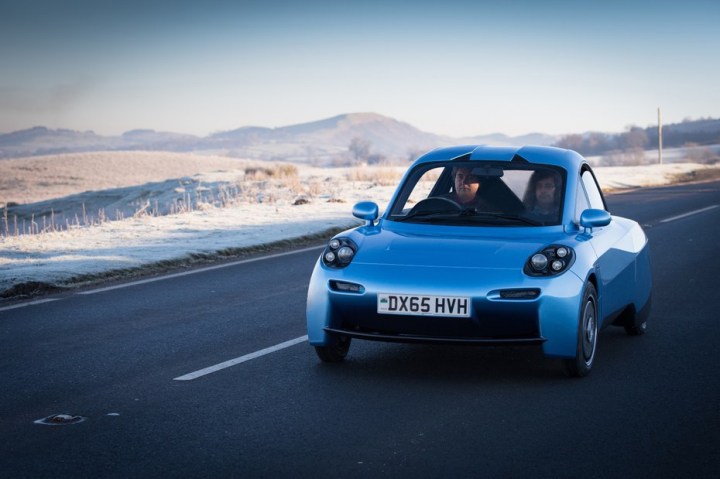
Welsh startup Riversimple is working on its own small fuel-cell car called the Rasa, and it recently received a boost in the form of two grants worth a combined 325,000 pounds (about $430,000). Riversimple will use the grant money to continue development of the Rasa, and claims projects funded by the two grants will create 7,000 jobs in the U.K. Riversimple previously received a 2 million pound (roughly $2.9 million) grant from the Welsh government.
A grant of 200,000 pounds (about $264,000) will go toward a collaboration with engineering firm Presreg and the University of South Wales. The three entities will jointly develop a “hydrogen container manifold and regulators” for use on future cars, according to Riversimple. This will allow those components to be manufactured in the U.K. rather than imported, helping to create a local supply chain for fuel-cell powertrains, the company said.
Read more: Pininfarina’s H2 Speed hydrogen concept will become reality
A second grant of 125,000 pounds (about $165,000) will fund development of “bio carbon fiber” from flax, a project being undertaken in concert with NetComposites and KS Composites. Riversimple claims this material will be less expensive than alternatives, and hopes that it will be widely adopted by the car industry. The 7,000-jobs figure quoted by the company is related to the development and mass production of this material.
The Riversimple Rasa is an aerodynamic two seater that weighs just 1,200 pounds, thanks in part to a carbon-fiber monocoque chassis weighing a mere 88 pounds. A hydrogen fuel-cell stack sends power to four in-wheel electric motors, but the Rasa can also recover energy from braking, like most hybrids and battery-powered cars. For that, it relies on super capacitors to store the recovered electricity. Riversimple claims a 300-mile range, but with a top speed of just 60 mph.
Riversimple plans to build a pilot batch of 20 cars, and then commence regular production in 2018. Rather than simply selling cars to customers, though, Riversimple will charge a fixed monthly fee that includes maintenance, insurance, and fuel. So the ownership experience should be almost as unusual as the car itself.


